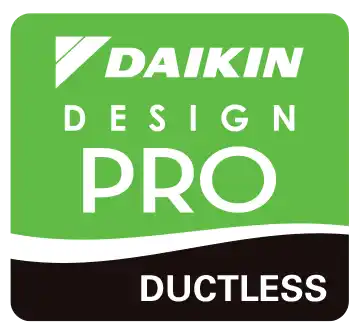Hot water pressure plays a critical role in the comfort and efficiency of daily routines in any household. For residents in Lisle, maintaining consistent hot water pressure is essential for tasks like showering, washing dishes, and laundry. When the pressure dips, it can disrupt the flow of daily activities and lead to inefficiencies in your water heating system. Understanding the importance of proper water pressure can help you better manage your household’s needs and avoid potential inconveniences.
Water heaters are central to providing hot water, and any issues can quickly impact household operations. Whether you’re taking a shower or doing a load of laundry, the effectiveness of your water heater directly affects the pressure consistency. Having the right knowledge about possible issues and how to troubleshoot them empowers you to maintain a comfortable and functionally conducive environment in your home.
Common Causes of Low Hot Water Pressure
When you notice that your hot water pressure isn’t quite what it should be, several factors could be to blame. One common cause is the buildup of minerals and sediment within your plumbing system. Over time, these accumulations can reduce the diameter of pipes and restrict water flow, resulting in lower pressure at the tap.
Additionally, the water heater itself can be a source of the problem. A faulty valve or a clogged filter on the water heater can hinder its performance, causing insufficient water flow. Another possible culprit is leaks within the plumbing system. Even small leaks can lead to noticeable drops in pressure, as water escapes the system before it reaches your fixtures.
Diagnosing the Problem
Identifying the root cause of low hot water pressure requires a careful, step-by-step approach. Here’s how you can proceed:
1. Check for mineral buildup and sediment:
– Inspect pipes for visible crusty deposits or discoloration.
– Consider the age of your plumbing and water heater, as older systems are more prone to buildup.
2. Inspect the water heater:
– Look for signs of wear or obstruction, particularly around valves and filters.
– Listen for unusual noises that might indicate sediment within the tank, such as popping or rumbling sounds.
3. Identify potential leaks:
– Examine exposed pipes and joints for dampness or drips.
– Pay close attention to areas around the water heater and near fixtures.
By carefully investigating these areas, you can pinpoint the exact cause of low pressure and take appropriate action. Understanding these fundamentals enables you to stay ahead of problems and maintain the efficiency of your water heater, ensuring that your Lisle home remains comfortable and hassle-free.
Solutions and Repairs
Once you’ve identified the causes of low hot water pressure, it’s time to tackle the solutions. Start by addressing mineral buildup and sediment in your water heater. These elements often accumulate at the bottom of the tank, reducing capacity and efficiency. Flushing the water heater is a good practice to remove this sediment.
– Turn off the power: For electric water heaters, flip the breaker. For gas heaters, set the thermostat to the “pilot” setting.
– Connect a garden hose: Attach it to the drain valve at the bottom of the tank.
– Drain the tank: Open the valve and let the water run out until it’s clear.
– Close the valve: Once finished, close the valve, remove the hose, and refill the tank.
If you suspect a faulty valve or filter, it may need adjustment or replacement. Begin by examining these components for any visible wear or damage. Many times, cleaning or replacing clogged filters can restore normal pressure.
Leaks can also be a significant part of pressure problems. Thoroughly inspect your plumbing, focusing on connections and joints. Repairing any leaking areas will often restore pressure balance.
When to Call Our Professionals
While many minor issues can be resolved with basic troubleshooting, some situations require professional expertise. Persistent low pressure, especially following DIY efforts, might indicate more severe problems. If your water heater is older and there’s continual sediment buildup, it could be time for a comprehensive check. Additionally, if you’ve sorted out the obvious culprits but still face issues, it might be caused by complex internal malfunctions.
Professional assessment and repair ensure the job is done safely and thoroughly. Skilled technicians have the tools and experience necessary to identify less apparent problems and provide solutions that DIY efforts might miss. This intervention is particularly important to avoid any safety hazards and ensure the longevity of your water heating system.
Ensuring Consistent Hot Water Pressure in Your Home
After troubleshooting and repair, maintaining consistent hot water pressure involves regular upkeep. Scheduling periodic inspections and cleanings can significantly reduce the chance of recurring problems. Routine maintenance helps maintain pressure levels, enhance the efficiency of your water heater, and prolong its lifespan.
By addressing minor issues promptly with expert intervention, you can keep your water heater running smoothly. This proactive approach ensures your Lisle home continues to enjoy reliable hot water pressure, supporting all your daily activities without interruption. Let’s keep your household running comfortably and efficiently, season after season.
For consistent performance and reliable hot water in your Lisle home, trust our professionals to provide expert water heater repair in Lisle. Routine maintenance can prevent further complications and help avoid costly repairs, keeping your daily schedule uninterrupted. For a quick estimate or to book a service visit, please contact us to receive timely support from Expert Heating, Air Conditioning & Plumbing.











